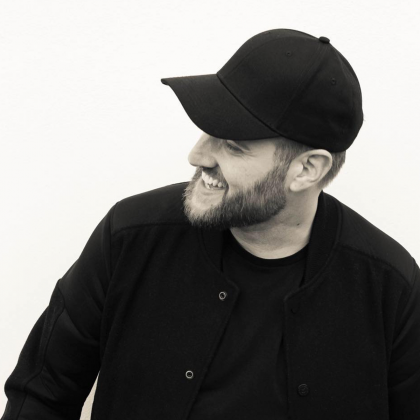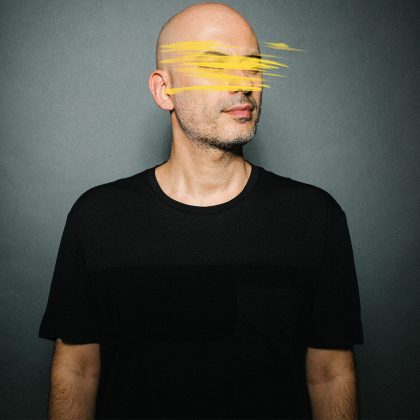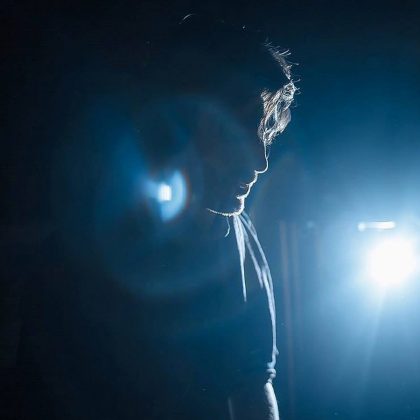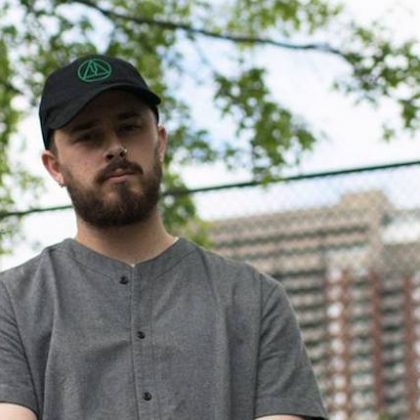LCD Soundsystem “Losing My Edge”
The birth of our underground brand Factory 93 not only brought on an adrenaline rush reminiscent of the renegade warehouse era of raving—on which Insomniac was founded—but it also had us thinking back to all the people, places and parties that made this whole operation possible. And with that came a burning desire to crack open our collection and dust off the classic records we couldn’t live without. Through our From the Crate series, we’ll be breaking out both seminal and obscure cuts alike, imparting some knowledge in the process.
James Murphy is 47. When he was 32, he wrote and recorded “Losing My Edge,” one of the decade’s defining dance singles and probably still the best one he’s written to date. This was when LCD Soundsystem was basically him and Pat Mahoney. Before becoming a full, robust group that went on world tours, it was more of a one-man band with lots of guests and people falling into Murphy’s magnetic, navel-gazing orbit.
“Losing My Edge” is a lot of things to a lot of people. It’s the ultimate Gen X anthem about fighting to stay relevant and culturally dominant over the Millennials, whose footsteps he could hear coming around the corner almost two decades ago. And it still is the key artifact in understanding basically every move that Murphy makes. Murphy’s obsessive-compulsivity informs his working habits and perhaps how he categorizes music as a fan and DJ, and this song is about that.
The song is essentially Murphy ranting over a swelling, muscular beat about all the cool music he knows and how many cool mixtapes he has. It’s full of goofy brags about all the musically important places he’s been, before anyone else. He’s the guy who’s always heard of bands before you and is willing to tell you about it. He name-checks Can, Daft Punk, Basic Channel, Lou Reed—basically everything in the record collector’s canon. He’s playing a persona, but is he? It’s about frightened male ego, about someone whose only cachet is music and cool.
Here’s the full 12″ version.
On the surface, “Losing My Edge” is a list of lists, made by a compulsive crank afraid of becoming the compulsive crank he already is. It’s also a mission statement of sorts for DFA and this whole new hyper-self-aware, fragile DJ/rocker/electronic music maven archetype—the one who knows all the good records from all the credible genres and is self-deprecating about his own musical nerdiness. And, also, the drugs were back. New York had gotten so uncool in the Giuliani ‘90s that clubbing, drugs, and partying were destined to come back for at least one last hand before New York priced out anything remotely fun. “Losing My Edge” captures that moment in a way only a handful of those records still can, while feeling both perfectly dated and evergreen.
But despite the fact that there’s always been “this guy”—this protean record store dickhead (part music critic, part record store guy, total dick, and probably what I am, too)—“Losing My Edge” is a record specifically about what it was like trying to be cool in New York around the turn of the century. It’s a self call-out, a style that would be dominant in ‘00s comedy, where actors would take the piss out of themselves in a way to undermine it. Classic move.
It’s also a rebuff against a homogenized canon that had coagulated by then. It’s Murphy calling out the cool-kid starter kit for Millennial hipsters, a double-edged way of saying, “You better know all these records” and “Everyone fucking knows these records—are you kidding?” And, oddly, it still feels super prescient, like it would make a big stink if it just came out in 2017, and all the references still feel apt.
Before he started LCD—before he fell in love with dance records and became synonymous with hipster house and house party disco—Murphy was in bands in his 20s, like Pony and Speed King, doing the punk thing. He was an engineer who had OCD and knew how to play a bunch of instruments. And, according to the Rapture’s Luke Jenner, he hated dance music. In Lizzy Goodman’s grimy oral history of the ‘00s in New York, Meet Me in the Bathroom, Jenner says, “James Murphy didn’t like two things: He didn’t like Bob Dylan, and he didn’t like disco.”
Murphy: “I was not cool… I wasn’t going anywhere. I wanted to, but I wasn’t. And, oh god, I was aggressive.” He eventually got into disco, house, and beyond after a magical, very much on-the-nose night when he first experienced ecstasy. He became a full convert, it seems. He—like many of the rockists who burned off from indie and alt rock by the end of the ‘90s—was craving something a little more radical, a little more functional for the dancefloor. Something that wasn’t for the arm-folders but, instead, for the dancers out there. He would go on to get involved with Plant Studios, teaming with Tim Goldsworthy of Mo’ Wax to form DFA and embedding himself in this percolating scene of art rock, electro, disco, and all that jazz.
Murphy wrote “Losing My Edge” in a period after his parents had died and after 9/11. He had “Beat Connection,” another more “fun” track he had been tinkering with for almost a year. But Murphy was pissed off feeling betrayed and after losing the Rapture to a major label and having a bitter falling-out with DJ David Holmes. There’s an aggression and muffled anger beneath the obvious, thin layers of sarcasm and glibness on this prolonged rant. “Losing My Edge” was recorded on mini cassette after he met Pharrell at a show. Murphy left the encounter scared and thinking, “I’m losing my edge to this kid.”
Dominique Keegan of Plant Music explains that “the beat from ‘Losing My Edge’ came from a present Ad-Rock [of the Beastie Boys] gave James. It was a ghetto blaster, with a synthesizer on top of it… James locked himself in the studio. He wanted to do all his writing and recording in the studio overnight on his own. He just pressed record and played live drums over one of the beats on that synthesizer.” It feels more immediate than most of his productions, because it feels so much less picked over—like he went in, recorded it, tweaked a few things, and then put it out. Not this endless iterating he is often known for.
Murphy’s former partner Tim Goldsworthy claims it’s a “direct rip-off of a Killing Joke track. Directly.” Which it is. For those of us who weren’t aware of the rip, it was effective and helped round out some of the bleepier music out of the nascent DFA imprint—which was just getting off the ground—with some more human-feeling records. The Celluloid-records-like early-‘80s no wave/post-punk/boogie scene they were trying to replicate was actually happening, and this is still a touchstone of that whole era, as deliriously self-indulgent as it is. You can almost taste the bad cocaine and smoky bar rooms this was played in as the ‘00 nightlife scene in New York was brought back from the dead. The single was released with “Beat Connection” on the flip, after being passed around all the right circles as a very hot demo cassette.
What LCD did then has now become the mainstream. Brooklyn has been gentrified. Murphy is one of the prototypical Gen X winners who owns a wine bar, produces rock bands, DJs when he wants to, and has to restart his vanity project (LCD “retired” in 2011, “reuniting” this year) whenever he needs more money. The angry young man has nothing to be angry about anymore. He’s climbed the mountain and found there’s never enough. There’s always someone who’s right behind you, someone lurking, trying to beat you. But it’s not someone else. It’s always been Murphy’s own internal critic. It’s that voice inside you that’s neurotic and self-annihilating but still has a sense of humor, because it’s just you after all. That’s who this song is for.





